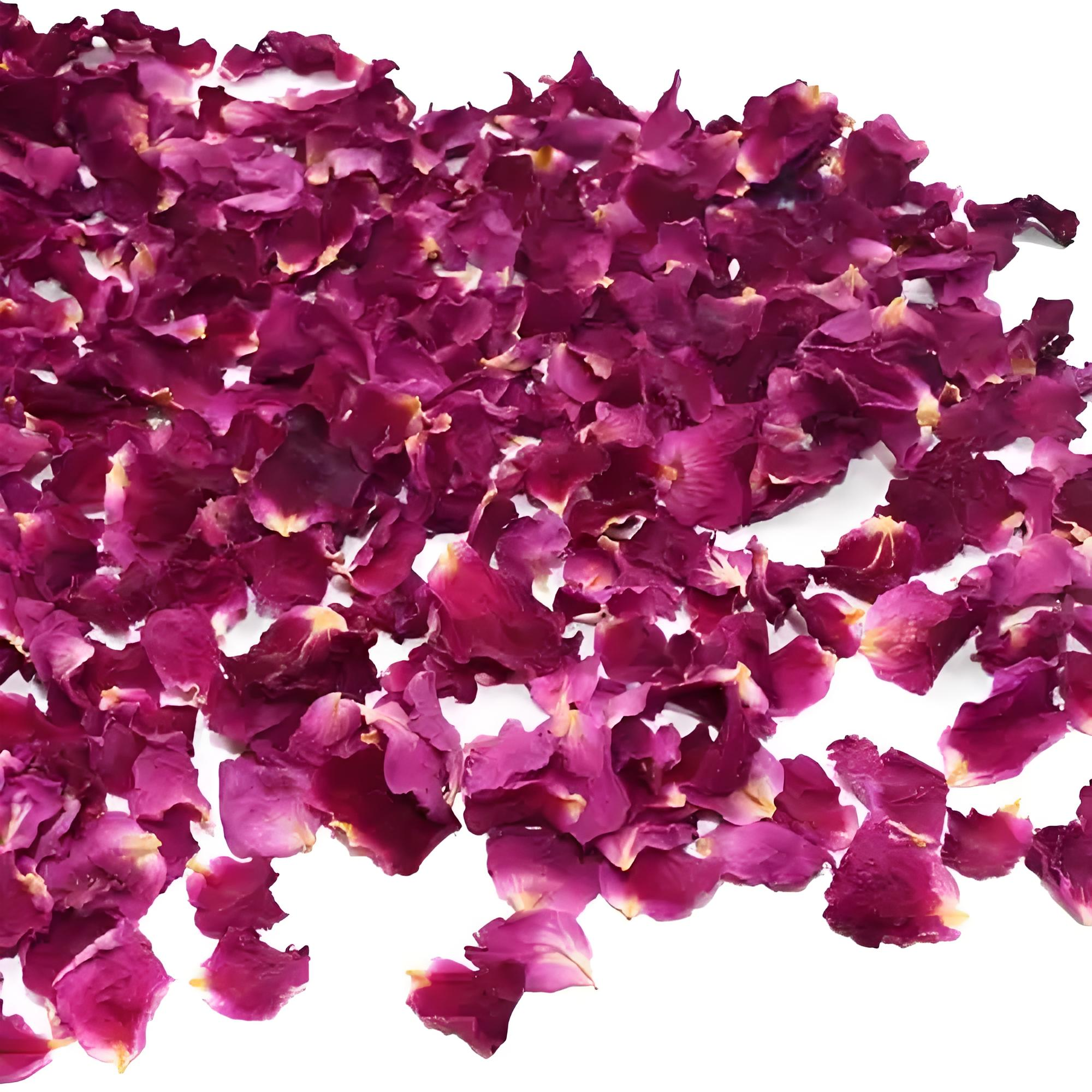1.What are the benefits of rose petals?
Rose petals have many uses, both in cooking and as a healing aid. Here are some of their main benefits:
1. Culinary Uses: Rose petals can be used in cooking and baking. They add a subtle floral flavor to dishes, teas, jams, and desserts. They are also commonly used in Middle Eastern cuisine, such as in rose water or as a garnish.
2. Aromatic Properties: The scent of rose petals has a soothing effect and can be used in aromatherapy. They help create a calming atmosphere and may reduce stress and anxiety.
3. Nutritional Benefits: Rose petals are rich in vitamins A, C and E, as well as antioxidants, which help fight oxidative stress in the body.
4. Skin Care: Rose petals are often used in skin care products for their anti-inflammatory and moisturizing properties. They can help soothe irritated skin and replenish moisture.
5. Digestive Health: Rose petals are traditionally used to aid digestion and may help relieve digestive issues.
6. Anti-inflammatory Properties: Compounds in rose petals may have anti-inflammatory effects, which can be beneficial for overall health.
7. Natural Remedy: Rose petals have been used in traditional medicine to treat a variety of ailments, including headaches and menstrual discomfort.
When using rose petals, always make sure they are organic and free of pesticides or chemicals, especially if you plan to eat them or use them in skincare products.
2.Can you buy just rose petals?
Yes, you can buy rose petals directly! Rose petals come in a variety of shapes, including:
1. Dried rose petals: These can be purchased at health food stores, spice shops, or online. Dried rose petals are commonly used in cooking, herbal teas, potpourri, and crafts.
2. Organic Rose Petals: If you’re looking for a pesticide-free option, many retailers offer organic dried rose petals.
3. Culinary Rose Petals: Some stores sell rose petals specifically for culinary use, which are safe to eat and can be used in cooking, baking, or making herbal tea.
4. Bulk Petals or Bags: You can find rose petals sold in bulk or in small bags, which can be used for various purposes, such as bath products or aromatherapy.
When buying rose petals, always check that they are suitable for your purpose, whether that’s cooking, cosmetics, or decoration.
3.Is eating rose petals healthy?
Yes, edible rose petals are healthy, provided they are sourced from a safe, pesticide-free environment. Here are some of the health benefits of edible rose petals:
1. Nutritional Value: Rose petals contain vitamins A, C and E, as well as antioxidants that help protect the body from oxidative stress.
2. Anti-inflammatory properties: Compounds in rose petals may have anti-inflammatory effects, which is beneficial for overall health.
3. Digestive Aid: Rose petals have traditionally been used to help with digestive issues and may promote digestive health.
4. Improve Mood: The aroma and taste of rose petals can have a calming effect, helping to reduce stress and anxiety.
5. Culinary Uses: Rose petals can be used in a variety of dishes, teas and desserts, adding flavor and a unique aesthetic to meals.
Important Notes:
– SOURCE: Make sure the rose petals are organic and free of pesticides or chemicals, especially if you plan to eat them.
– In moderation: As with any edible flower, rose petals are best consumed in moderation.
Overall, if used correctly, rose petals can be a delicious and healthy addition to your diet!
4.Why are rose petals so expensive?
Rose petals are relatively expensive for the following reasons:
1. Labor-intensive harvesting: Harvesting rose petals is a labor-intensive process. The petals must be picked by hand, usually at a specific time of day when the petals are at their most fragrant and fresh. This requires a skilled workforce, which can drive up costs.
2. Seasonality: Roses are seasonal flowers and availability varies throughout the year. During the off-season, supply is limited and prices may be higher.
3. Quality and Variety: High-quality rose petals, especially those from specific varieties known for their fragrance and flavor (such as Damascus roses), can cost more. Organic and sustainably grown petals also tend to cost more due to their cultivation methods.
4. Processing and Packaging: If rose petals are dried or processed for culinary or cosmetic use, additional processing, packaging, and quality control fees will apply.
5. Market Demand: The demand for rose petals in the culinary, cosmetic, and decorative sectors can influence their price. As more people develop an interest in natural and organic products, demand for high-quality rose petals is likely to increase, leading to higher prices.
6. Shipping and import costs: If the rose petals are coming from the region where they are grown (such as certain countries famous for their roses), shipping and import costs will also affect the total price.
These factors combine to make rose petals more expensive than other herbs or flowers.
If you are interested in our product or need samples to try, please do not hesitate to contact me at any time.
Email:sales2@xarainbow.com
Mobile:0086 157 6920 4175(WhatsApp)
Fax:0086-29-8111 6693
Post time: Aug-02-2025


